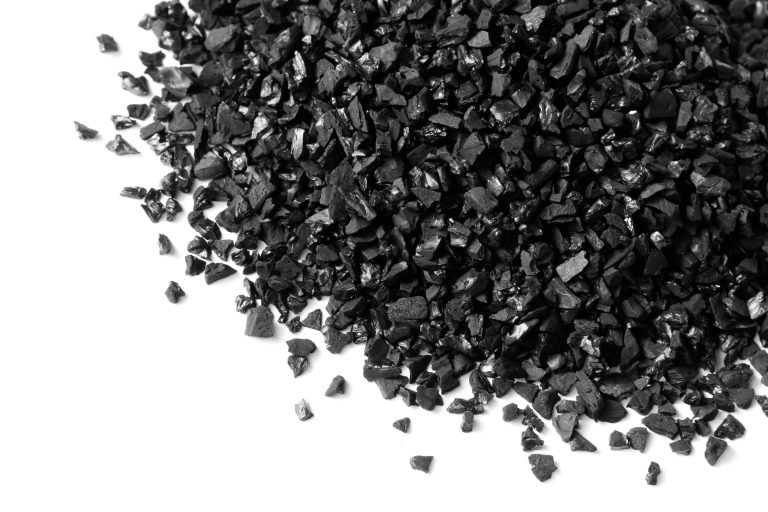800.242.1150
Home » Learning Center » About Activated Carbon

Carbtrol offers a variety of activated carbons for adsorption of organic compounds from contaminated water and air streams. Produced to strict quality standards, our activated carbons have very high adsorption capacity, which minimizes carbon usage and saves money on carbon changeout costs.
CL: Coal based, granular virgin activated carbon, high activity. NSF approved for potable water applications.
CSL: Coconut-shell based, granular virgin activated carbon, high activity, high hardness.
CV: Coal based granular virgin activated carbon, high activity.
CSV: Coconut-shell based, granular virgin activated carbon, high activity, high hardness.
CAT2: Coal based, pelletized, non-impregnated, virgin activated carbon, high activity. High catalytic action for H2S removal.
CV-KOH: Coal based, pelletized virgin activated carbon, high activity, potassium hydroxide impregnated.
Other impregnated carbons, reactivated carbons, and other media are available upon request.
Activated carbons are widely used for the adsorption of organic compounds from contaminated water and air streams. The adsorption process results from a physical attraction which holds molecules of the absorbate at the surface of a solid by the surface tension of the solid.
Activated carbon is produced from carbonaceous materials such as coal, coconuts, wood and petroleum coke. Granulated activated carbon has an extensive pore structure which provides an enormous amount of surface area for each particle of material. For example, the surface area available in one pound of granular activated carbon is equivalent to six football fields.
A measure of the capacity of a carbon to adsorb chemical compounds is the iodine number used for the liquid phase, and the carbon tetrachloride number, used for the gaseous phase. These standard tests signify the amount of a given quantity of iodine or carbon tet which will be adsorbed in one gram of the test carbon. Iodine numbers usually are in the range of 900-1100 and carbon tet numbers are 60 to 65 for high quality carbon.
There are significant differences in the abilities of various carbon products to remove unwanted substances. This ability is determined by the carbon’s “adsorption capacity,” i.e. the amount of impurity removed by a given amount of activated carbon. The higher this capacity, the more contaminants removed per, let’s say, cubic foot, the less carbon that is needed to perform a particular job.
In the manufacture of activated carbons, a wide variety of raw materials and widely varying quality specifications are used. While the raw material itself determines many of a carbon’s physical properties, its adsorption capacity is dependent on a precise and carefully controlled steam activation process.
Quality is also an issue with reactivated carbons. The ability to decontaminate and reactivate spent carbon to near virgin capacity is dependent not only on proper operation of the reactivation furnace but its close and careful monitoring (e.g. thermal degradation and the build up of inorganic ash constitutes are common problems with carbons that are repetitively recycled).
The carbon manufacturing industry and ASTM have two critical tests that not only measure the quality of both virgin and reactivated carbon products but also predict its cost effectiveness:
The IODINE ADSORPTION TEST (ASTM D4607) for measuring the LIQUID PHASE of activated carbons produce IODINE ADSORPTION numbers from 800 to 1250 mg/gr. (the higher the number the greater the capacity).
The CARBON TETRACHLORIDE ADSORPTION TEST (ASTM D3467) for the VAPOR PHASE of activated carbons produces CARBON TETRACHLORIDE ADSORPTION numbers ranging from 45 to 70% by weight.
When buying either virgin or reactivated carbon products, make sure that these adsorption numbers are specified. Then, compare these to Carbtrol’s to ensure the best activated and reactivated carbon value for your money.
Liquid Phase Virgin Carbon – CSL – Iodine Number – 1100 mg/gr. (average)
Vapor Phase Virgin Carbon – CSV – Carbon Tetrachloride Number – 60 to 65%
View SDS Sheet for Carbtrol activated carbon products:
